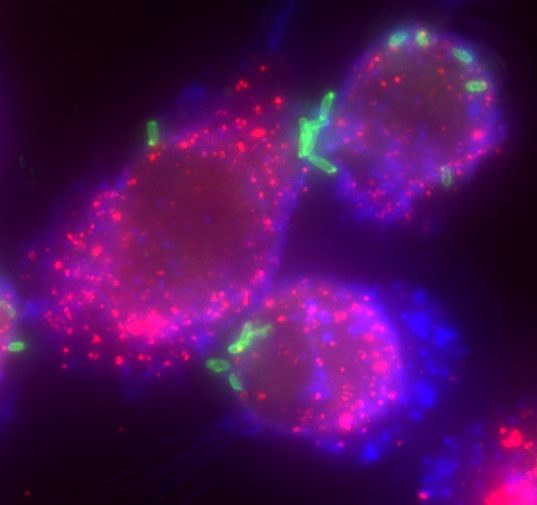Présentation
Our Unit investigates and characterises the molecular, genetic and cellular basis of the infection by Legionella.
Legionella are environmental bacteria but some species like Legionella pneumophila or Legionella longbeachae are also opportunistic pathogens that can cause Legionnaires’ disease, a severe pneumonia, in particular in people whose immune defences are weakened. The bacterium’s survival and spread depends on the ability to replicate inside eukaryotic phagocytic cells. It is known for its dual host system allowing the intracellular growth in protozoa like Acanthamoeba castellanii, Hartmanella sp. or Naeglaria sp., and in human alveolar macrophages. It can be speculated that the interaction of L. pneumophila with aquatic protozoa has generated a pool of virulence traits during evolution, which allow it to infect also human cells. Upon internalization into the eukaryotic cell, Legionella guarantee their survival by manipulating host cell functions such as disturbing vesicle trafficking, therewith reprogramming the endosomal-lysosomal degradation pathway of the phagocytic cell.

We aim to understand 1) the relationship between virulence and genetic diversity among different isolates of Legionella pneumophila and different species of Legionella, to decipher 2) the mechanisms leading to this diversity and to understand 3) the role diversity plays in infection and environmental adaptation. In line with this, we aim to gain knowledge on 4) how Legionella adapts/regulates its cycle between a eukaryotic host and the environment and to understand 5) the function newly identified putative virulence factors of Legionella pneumophila and Legionella longbeachae have in the intracellular infection cycle.

